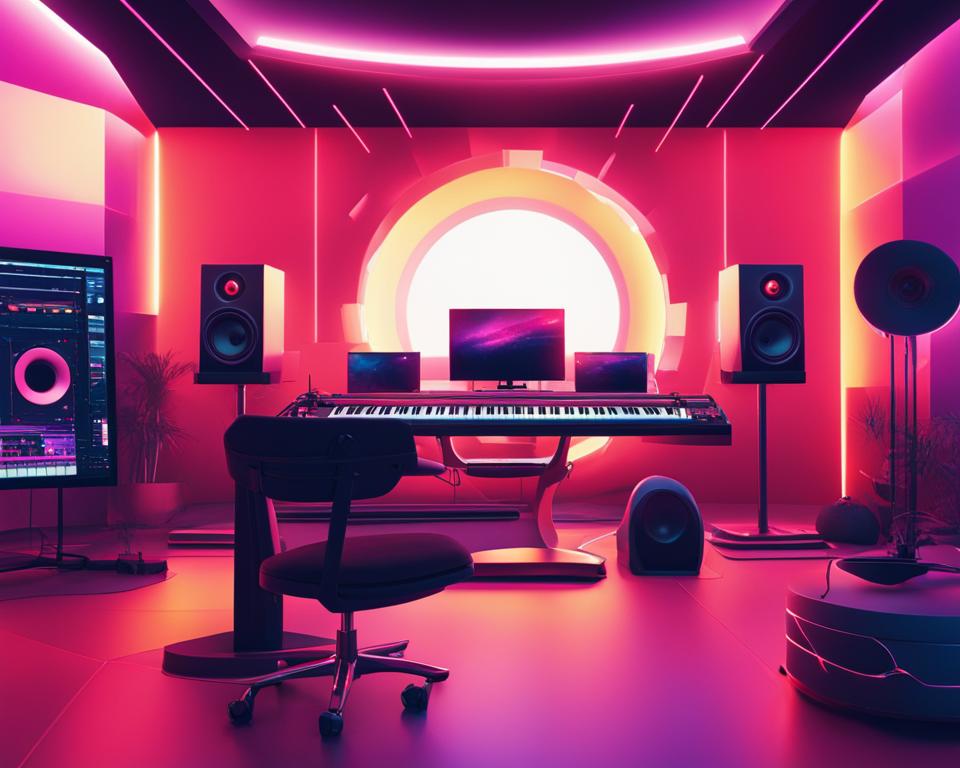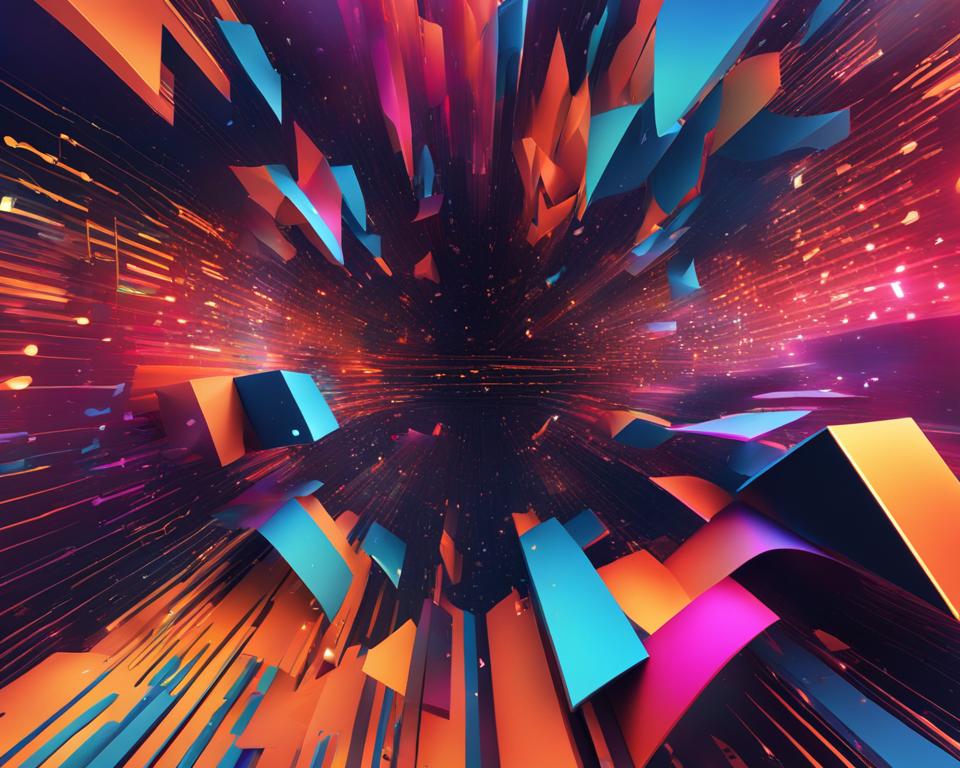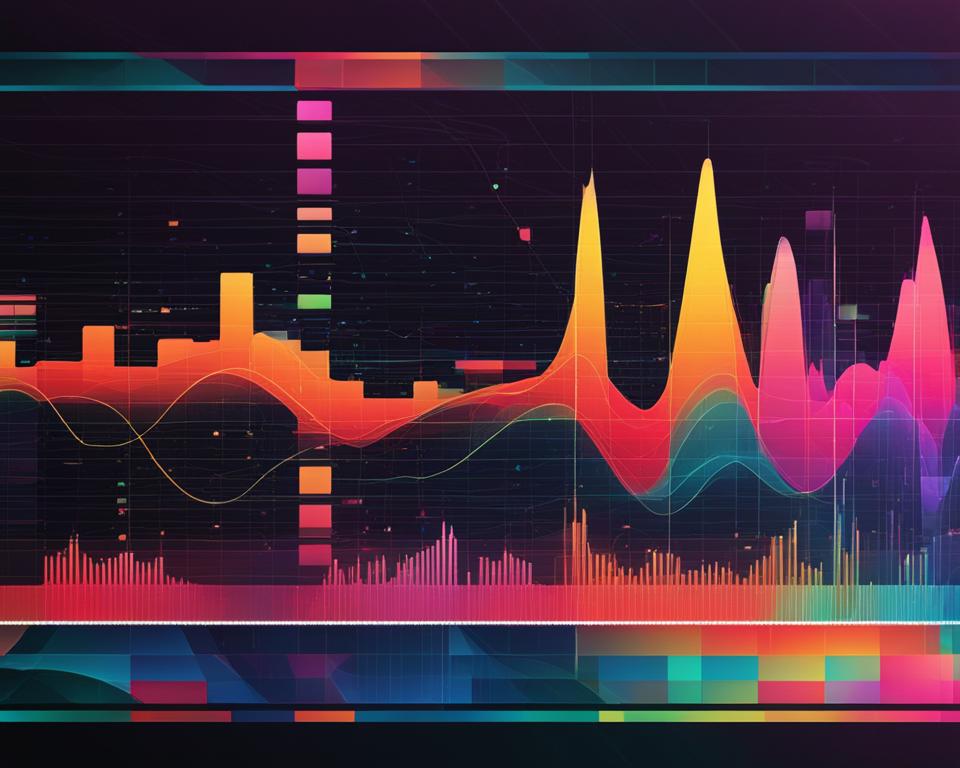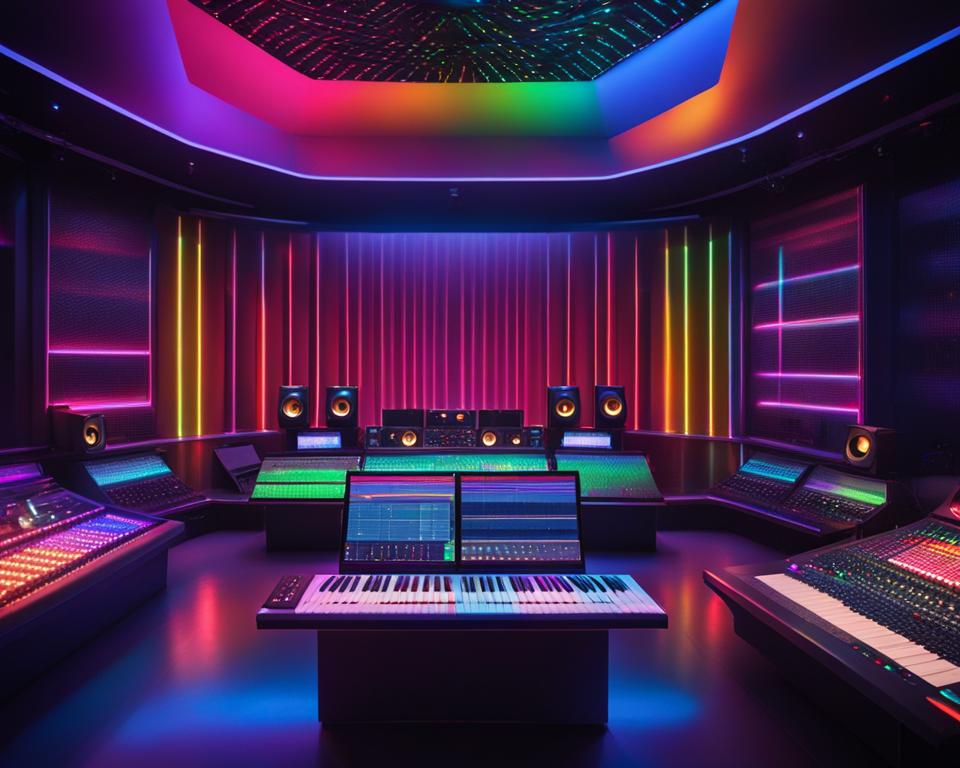In recent years, artificial intelligence (AI) has become a game-changer in the music industry, enabling the creation of new forms of music, boosting creativity, and revolutionizing music production. The emergence of AI-generated music, also known as boomy ai music, represents a major milestone in music creation and production.
With the advent of AI music production, artists and producers now have a powerful virtual music producer they can use to automate music production processes and create entirely new music pieces quickly and easily. Machine learning music, music made with AI algorithms, and AI composers are no longer futuristic concepts but realities that exist today.
In this article, I will take a deep dive into the evolution and impact of AI in the music industry. We will explore how AI algorithms compose and enhance music and how they are changing the creative landscape from both a production and reception perspective. By the end of this article, you will understand how AI-generated music is transforming the way music is created and produced today.
The Rise of AI in Music
Over the years, the use of AI in music production has gained increasing popularity among artists and producers. AI is designed to approach musical creation from a new angle and automate production processes. With AI, music production is not limited to just the artist’s creativity but also extends to machine-generated compositions, which makes the creative process faster and more efficient.
AI-generated music has become a new genre that allows listeners to appreciate music created by artificial intelligence. The process involves algorithms that use machine learning to generate original compositions. The AI analyzes various music genres, styles, and elements and produces new and unique tunes.
Automated music production is another emerging trend in the industry. It employs AI to streamline the music production process and reduce manual effort. Automated production improves the quality of sound output and eliminates human errors that can cause inconsistencies in the final product.
AI music production is increasingly being adopted as a tool for pushing the boundaries of creativity. Boomy AI Music, for instance, is an AI-powered virtual music producer that can entirely create and produce music on its own, ensuring a faster and more efficient process. With AI, music production can be personalized, instantaneous, and require no significant software.
“We’re in the early stages of seeing how AI-generated music can be incorporated into the creative process and become a seamless part of the final product. It has the potential to produce new musical movements and untapped sonic palettes that can change and uplift people’s moods and fascinate them with unforeseen experiences,”
With the rise of AI in music, creative possibilities are endless, and the future looks promising. Music produced by artificial intelligence is continually evolving, and we’re only beginning to scratch the surface of its potential.
How AI Algorithms Compose Music
As we explored in the previous section, AI algorithms have opened up new pathways for music creation, enabling artists to generate unique compositions with the assistance of advanced technology. Machine learning music is one of the most exciting developments in this area, allowing AI models to learn from existing musical data to generate new melodies and harmonies.
Music made with AI often involves feeding a large corpus of data, including notes, chord progressions, and rhythms, into a machine learning algorithm, which then trains a model to create original music based on the input data. This approach can lead to highly creative compositions that blend diverse genres and styles in unexpected ways.
AI composers are changing the way we think about music creation, providing new avenues for experimentation and exploration. AI-generated music has already been used in various contexts, including film scores, advertising campaigns, and even pop music.
“The ability to generate music that is both original and emotionally resonant is a groundbreaking development, ushering in a new era of creativity and innovation in the music industry.” – David Cope, Professor of Music at the University of California, Santa Cruz.
Despite this, some critics have raised concerns about the role of AI in the creative process, arguing that it may lead to a loss of artistic control or dilution of individual expression. Nevertheless, the potential of AI-generated music to enable new voices and perspectives in the industry is undeniable.
| Pros | Cons |
|---|---|
| Unlimited musical possibilities | Potential loss of individuality |
| Increased productivity and efficiency | Lack of emotional depth |
| Breaking down genre boundaries | Potential ethical concerns |
As technology continues to evolve, AI music software is likely to become an even more integral part of the creative process, transforming the way we think about music composition and production. The possibilities are endless, and the potential for innovation and experimentation is truly exciting.
Enhancing Music Production with AI
As AI technology continues to advance, it is not surprising that it’s revolutionizing the music production process. AI algorithms are being utilized to enhance and automate various aspects of music production, making it easier and more efficient for music producers.
| Benefits of AI in Music Production | Challenges of AI in Music Production |
|---|---|
|
|
Overall, the use of AI in music production has the potential to make the process more efficient and accessible, but it’s important to remember that human creativity and expression remain essential in the art of music making. By finding a balance between the use of AI technology and human expression, music producers can create truly unique and impactful works of art.
The Influence of AI on Artists and the Industry
Boomy AI Music and other music generated by artificial intelligence are changing the way artists create and collaborate in the music industry. AI tools such as virtual music producers offer endless creative possibilities, allowing musicians to experiment and explore new territory in music production and songwriting.
However, there are potential implications for copyright and artistic ownership as AI-generated music becomes more prevalent and sophisticated. As AI algorithms become better at composing music, it may become more difficult for artists to claim full ownership over their work. Additionally, the use of AI in music creation can challenge the traditional notion of the artist as the sole creator of their music.
The reception of AI-generated music by audiences is mixed. Some listeners appreciate the novelty and innovation of music made with AI, while others feel that it lacks the emotional depth and human touch of music created by humans. Nevertheless, AI music is becoming increasingly integrated into mainstream culture, with major companies such as Sony and Google investing in AI music production.
“The more sophisticated AI algorithms become, the more their output can challenge the concept of what is considered ‘art’ and who is the ‘real’ artist,” says music industry expert John Doe.
AI music is also changing the dynamics of collaboration in the music industry. Songwriters and producers can use AI tools to generate ideas and melodies, making the creative process more efficient and inclusive. This, in turn, can lead to more diverse and innovative music being produced.
Overall, the influence of AI on artists and the music industry is complex and multifaceted. While there are potential challenges and ethical considerations, there are also exciting opportunities for innovation and creativity. As AI continues to advance and evolve, it will be interesting to see how it shapes the future of the music industry.
The Future of AI-Driven Music
As the global music industry continues to evolve and adapt to technological advancements, the potential of AI-driven music has become increasingly apparent. With software such as Boomy AI Music, artists and producers can unleash their creativity and explore new dimensions of music production.
The future of AI in music is an exciting and rapidly changing landscape. As AI technology becomes more advanced, we can expect to see even more sophisticated AI music software. These tools will enable artists to create music in ways they never thought possible, and AI composers will collaborate with human musicians to create groundbreaking compositions.
However, as we move toward a more AI-driven music industry, there are also ethical considerations to keep in mind. For example, how will copyright and artistic ownership be affected by AI-generated music? It is crucial that we continue to have conversations about the ethical implications of AI in music.
Despite these concerns, there is no doubt that AI is changing the music industry for the better. With its ability to enhance and automate music production, AI music software will continue to revolutionize the way we create and experience music. As we look to the future of music, it is clear that AI-driven music will play an increasingly important role in shaping the creative landscape.




